CPAC 2018: Conservatives grapple with anti-gay discrimination and religious freedom
Trump and GOP leaders remained silent on LGBTQ issues at CPAC, but among the GOP faithful, opinions on "religious liberty" varied

If a non-political person came to the Conservative Political Action Conference at the Gaylord National Resort & Convention Center last week, they could be easily forgiven if for being confused about the Republican Party that presented itself at the meeting of the conservative minds.
For one thing, social conservatives, while plentiful in the party, played second-fiddle to rousing speeches from official CPAC speakers about tax cuts and cutting “job-killing” government regulations or the sanctity of the Second Amendment. Even when President Trump, as leader of the GOP, took to the stage at CPAC, he didn’t utter one word about “religious liberty,” despite the fact that it has been prioritized by his administration.
Perhaps part of the reason is the calculation that the majority of Americans care more about the extra money in their paychecks due to the GOP’s tax reform, than the presence of transgender troops in the military or whether same-sex couples are adopting children.
And they’d be correct: A Pew Research Center national survey from January showed the public’s top three priorities were strengthening the economy, improving the nation’s education system, and combating terrorism. Two other issues in the top 10 were issues where the GOP generally enjoys an edge over Democrats: creating more jobs and reducing crime.
That’s why the bulk of Trump’s speech focused on domestic issues, ticking off the accomplishments achieved in his first year, urging conservatives to be vigilant going into the midterms, and not to become complacent with the successes Republicans have enjoyed in recent months.
“We have a big race coming up, you have to get out, you have to get that enthusiasm, keep it going,” the president said. “Don’t be complacent. If [Democrats] get in, they will repeal your tax cuts, they will put judges in that you wouldn’t believe, they’ll take away your Second Amendment…. So we have to get out there and we have to fight in ’18 like never before.”
Jason Berardo, a 20-year-old resident of Irwin, Pa., who serves as the president of the Ashland University College Republicans in Ashland, Ohio, says Trump’s speech picked the right issues to focus on ahead of the upcoming midterms.
“I’m excited because I think the conservatives have a strong message and strong policies,” he says. “The entire conservative platform is the correct vision for this country, and I think we need to recognize that. … I think we’re going back to our principles, and because of that, we’re going to win.
“We have the superior message,” adds Berardo. “The Democrats’ platform is just ‘Resist, resist, resist.’ Their message is: ‘We hate Donald Trump.’ Conservatives on the other hand — and you saw it with the president today — are coming out with specific, set policies.”
While many activists were eager to talk about the issues highlighted by Trump, they were more reticent to offer up opinions on LGBTQ rights unless asked directly.
Later this spring, the Supreme Court is expected to hand down a major decision in the Masterpiece Cakeshop case, where a Colorado baker is asking to be able to refuse to bake a cake for a same-sex wedding, citing his personal religious beliefs. And yet, despite the Trump Department of Justice siding with the baker, many CPAC attendees acknowledged the difficulty involved with reconciling a business owner’s religious beliefs with the desire not to discriminate against same-sex couples.
“It’s so important to find that balance,” says Emily Kaib, a 19-year-old attendee and member of the University of Pittsburgh’s College Republicans from McCandless Township, Pa. “I’m a Catholic. I’m fairly religious. At the same time, I do have friends who are LGBTQ. I have a friend who’s trans, one of my very best friends from childhood. And so that’s something I’ve been battling with: what’s the answer?
“If you are religious and own a bakery, and a homosexual couple is getting married and wants a cake, in that instance, I support the bakery owners. If they do not want to make a cake, they do not have to,” she says. “And the way I justify that is, if you are the couple, you don’t want to get a cake from those people anyway.”
Tanner Curtis, a 23-year-old CPAC attendee from Holliston, Mass., takes a more libertarian view of the situation.
“I think at the end of the day, it’s important to empower businesses and business owners to exert their beliefs on their business,” he says. “I think the free market will solve people’s P.C. concerns.
“Let’s say you were treated unsatisfactorily, you can go to a competitor down the road,” says Curtis. “I think it’s absolutely the right of consumers to go consume elsewhere if they’re dissatisfied. In this day and age, it’s easy to go online and find reviews, or a competitor.”
“It’s definitely a gray line,” says Sriraam Mehtalia, a 19-year-old Northeastern University student. “Obviously, the LGBT should have marriage equality. I’m all for that, as I think are a lot of people at CPAC. It’s nice that the battle for gay equality is now over cakes, but when it comes to that, cake shops should sell premade cakes to these couples, but they shouldn’t be forced to make new ones if it’s really against their religion. Because the couples could probably just go to another cake shop.”
But Jennifer Williams, a transgender Republican activist from Trenton, N.J., offers a contrarian view, saying that when a business opens itself up to the public, it should accept business from all comers. She also rejects the Colorado baker’s claim that his cake creations are a form of art.
“He could have easily made the cake, been over and done with,” says Williams. “He wasn’t asked to put a topper with two guys in tuxedos, from what I understand. And his religion, my religion, doesn’t say we have to celebrate the ceremony.
“I used to think, ‘Oh, well, we’ll just boycott them.’ If they don’t take our dollars, they’re going to go out of business anyway,” she says of proprietors who wish to refuse service to LGBTQ people. “But you know what? We can’t afford to take time for that. I respect that people have different religious view, but when you open your doors to the public, you open your doors to everyone.”
Support Metro Weekly’s Journalism
These are challenging times for news organizations. And yet it’s crucial we stay active and provide vital resources and information to both our local readers and the world. So won’t you please take a moment and consider supporting Metro Weekly with a membership? For as little as $5 a month, you can help ensure Metro Weekly magazine and MetroWeekly.com remain free, viable resources as we provide the best, most diverse, culturally-resonant LGBTQ coverage in both the D.C. region and around the world. Memberships come with exclusive perks and discounts, your own personal digital delivery of each week’s magazine (and an archive), access to our Member's Lounge when it launches this fall, and exclusive members-only items like Metro Weekly Membership Mugs and Tote Bags! Check out all our membership levels here and please join us today!








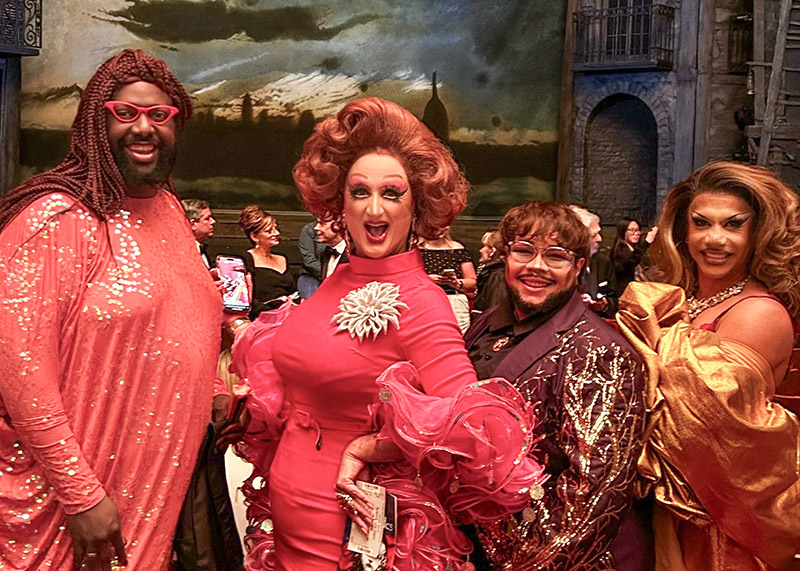

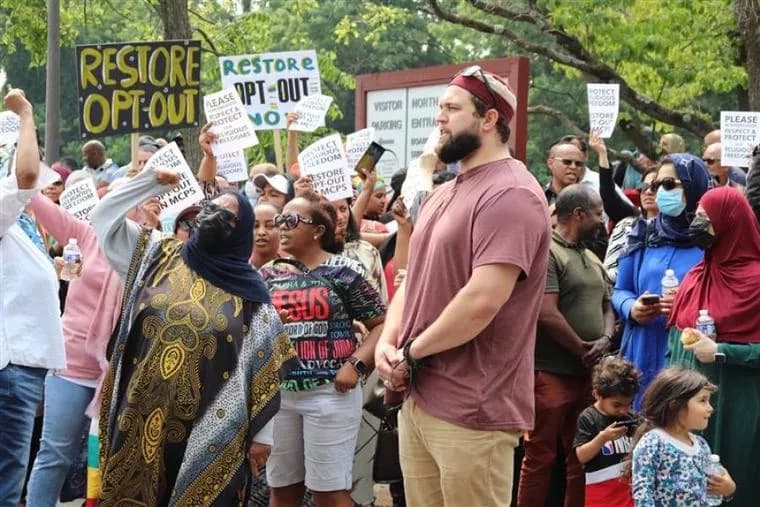














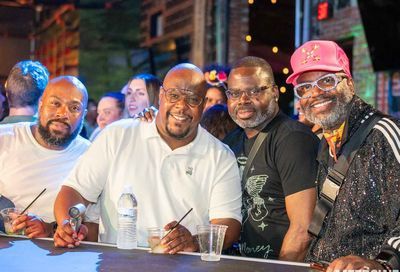
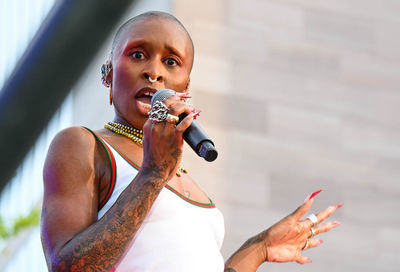




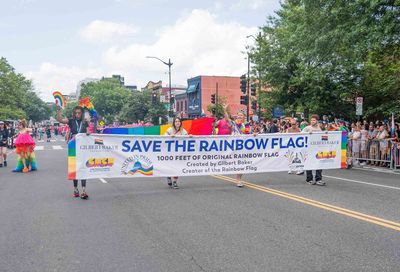
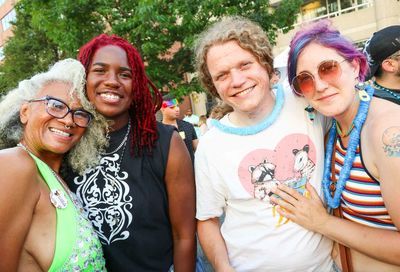
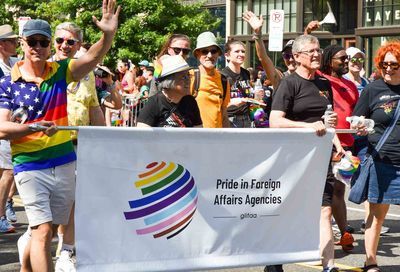
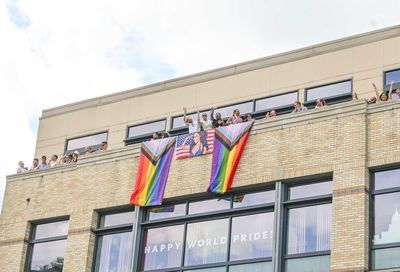
You must be logged in to post a comment.